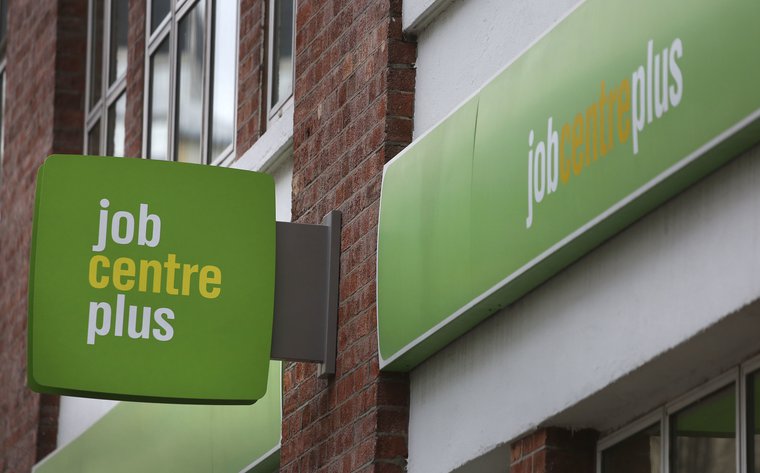
As unemployment soars, what does history teach us about how to support people?
The architect of social security said "adventure came not from the half starved, but from those who were well fed enough to feel ambition". But recent politicians have taken a different view. What now?

As the first coronavirus unemployment figures begin to reveal the future we’re facing, what now? What should those of us long committed to replacing or reforming our creaking system, call for? Is the new world ready to be born?
The old neoliberal order has been on life support for over a decade, and yet politics remains huddled around it, refusing to read out the last rites. And nowhere has this been more evident than in welfare policy, where a decade of relentless cuts and punitive sanctions has left us with the mangled monster of Universal Credit.
The Department for Work and Pensions is convinced Universal Credit is now working, based purely on the fact it hasn't collapsed amid the torrent of lockdown applicants. But this is largely because the government has temporarily stripped so many of the checks, conditions and complexities out of the system to stop it collapsing - the real Universal Credit is essentially on hold.
To formulate a better alternative, we need to look at how Britain's working age welfare state got here, and the key decisions and conflicting interests that have shaped - and misshaped - it along the way.
One for all, and all for one
The universal ideal of William Beveridge's welfare state grew from the terrible reputation of means tested benefits during the interwar years. Amid the economic strife of the early 1930s, anyone seeking support was assessed, at their home, for their financial income - not just their own, but their household's as well.
It was intrusive, demeaning and judgemental, and a licence for neighbourhood curtain twitchers. People hated it.
In addition, Beveridge shared the view of the middle classes that the means test penalised the 'thrift' of savers. "Benefit in return for contributions, rather than free allowances from the State, is what the people of Britain desire," he wrote, using rhetoric that hasn't disappeared in the decades since.
Hence he shifted to what he called a universal approach, based on the 'contributory principle'. Under this, people would pay National Insurance when they were in work, so as to receive contributions-based state support if they fell out of work, regardless of any other income or savings they might have.
But it wasn't 'universal' in the modern, all-encompassing sense. For those who couldn't afford to 'pay in', Beveridge created a means-tested fallback providing a very basic level of support, below the contributory scheme's payout. After all, one of the 'five evils' Beveridge wanted to slay was 'idleness'. Those who had never worked wouldn't be thrown under the bus, but would receive much less than those who had.
That was the idea. But the government fiddled the measures of living costs so that when the scheme was fully launched in 1948, contributory benefits were only just above the means tested minimum, and unlike that, they didn't fully cover rent.
As a result, means tested benefits proved far more popular than expected over time, especially as new social trends emerged that weren't covered by the Beveridge system - rising unemployment, more single parents, and greater longevity of disabled people.
For all that the 'contributory principle' has become a brand over the decades, a rhetorical device to be wheeled out by politicians who wanted to pose as 'big thinkers' or hark back to a lost golden age, in reality it started running out of gas soon after leaving the showroom.
Universalism v targeting
Arguments over universalism versus 'selectivity' were live ones from the start. The means-tested pre-war system was riddled with gaps in coverage. Beveridge favoured universalism to ensure nobody fell by the wayside, but also to ensure people weren't left worse off by losing benefits when moving into work.
The Treasury tried to push back, arguing that Beveridge's plans would give money to those who did not need it. Beveridge trimmed the scheme in response to its objections - disadvantaging women in the process. Family allowance wouldn't be paid for the first child, and full insurance for housewives and benefits for family carers were dropped. It's possible to see this as either the cost of satisfying the Treasury or the cost of maintaining 'universalism'.
The real assault on universalism came under later Conservative governments. It was not - then - that the Tories had some callous disregard for those in difficulty; they felt those in difficulty should be the focus of government support.
For example, Edward Heath's government drove up council housing rents while increasing rebates for poorer tenants, including those in private housing, arguing that this redistributed from middle class council tenants to those in greatest need.
Heath also ended Beveridge's flat rate benefit for all. Pensioners and the disabled were to receive more than the unemployed or short-term sick, partly as a work incentive for the latter group. The post-war ideal was slowly coming apart.
Full employment
Key to enabling Beveridge's universalism was full employment. Low unemployment was necessary to build up people's contributions to the new system, reduce the burden on the war-ravaged public finances, and stave off the 'evil' of idleness.
By 'full employment', Beveridge meant there would be no unemployment among able-bodied, working age men - and he was thinking primarily of men - beyond those between jobs or out of seasonal work.
This assumption stood up for a while. But on the cusp of a world that was changing forever, the architects of the new system hadn't seen what was approaching - deindustrialisation, globalisation, and ever rising structural unemployment.
Global competition put pressure on Britain's ageing mass-employment industries, outclassed some of Britain's bigger companies, and gave economic elites more options for where to site their factories, companies and tax registrations. Unemployment hit one million in 1972 for the first time since the war.
It was under Thatcher in the 1980s that a new concept emerged that was to dramatically shift government attitudes - NAIRU, or the 'non-accelerating inflation rate of unemployment'. This was the theory that below a certain level of unemployment, inflation starts to rise as labour scarcity drives up wages.
This came after a period when inflation was sky high, driven upwards not by labour shortages but by the oil price spikes of the 1970s. Based on NAIRU, the Thatcher government came to see unemployment in the millions as a price worth paying to bring inflation down.
This broke completely with the Beveridge model of full employment underpinning the benefit system. While new jobs were created, they tended to be in different parts of the country to where most jobs were lost, or in low-paying service sectors that did not match the experience, skills and expectations of laid-off male industrial workers. The number of long-term unemployed soared as joblessness became entrenched.
The war on 'dependency'
In The Five Giants, his magisterial history of the welfare state from which this article draws regularly, Nick Timmins describes the original Beveridge settlement as "an attempt at a knife-edge balance between competing and quite possibly irreconcilable goals".
Key among these competing goals were poverty reduction and work incentives. If people could get by without working, why would they bother to work? This logic/trope - delete to taste - is an eternal staple of welfare debates.
While Beveridge railed against 'idleness', his proposals reflect a fundamental belief in people that scrounger-bashers before and since have lacked. Whereas 19th century Poor Relief was deliberately set below the earnings of the 'lowest class', so as to penalise unemployment, Beveridge set universal benefits to provide a 'subsistence' income, covering 'all normal needs, in duration and in amount'.
While wanting to encourage families to build upon that state-provided minimum, he asserted that "adventure came not from the half starved, but from those who were well fed enough to feel ambition". In his view, people would make the most of themselves from a solid base, not from poverty - a contrast to earlier attitudes, and later ones.
At the time, public opinion was enthusiastically supportive. Wartime evacuation of working class children had shocked the middle classes with the reality of urban poverty. Beveridge tapped into this, but also argued for his plans relentlessly in the media, making the case for the welfare state in a way few have done since.
The system's popularity started to wane as more people began to pay income tax. In the immediate post-war era, the level of earnings above which people paid income tax was relatively high, but this fell sharply over the following twenty years in order to fund public services and the welfare state. By the late 1960s, tax cuts were more popular than higher social spending.
Stories of benefit scroungers were also on the rise. The 1970 Tory manifesto talked of 'shirkers and scroungers', but upon winning power they discovered that abuse of the system was actually minimal, and tightening controls was difficult without deterring genuine claimants - a concern ignored by Tories in the 2010s.
Nevertheless, the Callaghan government also operated in an era of inflammatory anti-welfare headlines, whipped up by increasingly hardline Tory MPs. Timmins notes fabricated stories and dubious claims that "unleashed a great surge of anti-welfare feeling that left the creaking social security system beleaguered and mistrusted".
At the 1978 Tory conference, Thatcher asked "Why work, if you can get by without?" Her government imposed benefit cuts on unemployed people in particular, convinced that laid-off industrial workers weren't taking new service sector jobs because they were better off living on benefits. The Tories ignored the fact that higher wages might also solve this.
Nevertheless, rising unemployment and the switch from council housing to housing benefit drove up the social security bill. In the 1990s, both Labour and Conservative politicians convinced themselves, and many voters, that fraud was widespread in the disability benefit system, and that single parents and the long-term unemployed were living off benefits.
The biggest assault on the right to unemployment benefit did not come under the Tories, however. Tony Blair's 'New Deal' imposed much more stringent conditions on unemployment benefit - rebranded as Jobseekers Allowance - than before. Claimants were now required to actively look for work, and after a certain amount of time accept any job offer or lose their benefits.
This fundamentally changed the basis of the benefit system. What was once 'social security' was now an ongoing threat to withdraw that security. Beveridge wanted to discourage idleness, but his system focused on ensuring it would be possible - but not particularly desirable - to live without work. Labour ensured that for those who could work, it would not be possible to live long term without doing so - not at public expense, in any case.
Disabled people also found themselves targeted. Given that the laid-off industrial workers who the Tories infamously 'parked' on Incapacity Benefit were now hitting retirement age, Labour simply judged that many of those working age people who said they were disabled were over-egging it. The disastrous legacy of this attitude to disabled people, shared by New Labour and David Cameron's Conservatives, has been well documented over the last ten years.
Self-defeating dependency
Such measures were publicly popular. But unemployment is mostly the result of broad economic trends and crises. Spikes in unemployment are driven by economic downturns or sectoral trends such as the decline of British manufacturing. They have never been caused by benefit payments rising - after all, the early years of the welfare state were accompanied by low unemployment.
There is a view that the generosity of benefits can influence how soon unemployment falls once an economic crisis has passed - that it affects whether people fall into entrenched, long-term unemployment, carried by the welfare state.
Labour took a carrot and stick approach, relying not just on tighter conditions, but also more help connecting claimants with employers. But their big carrot was in-work benefits.
These had long been criticised as a tax-subsidised carte blanche for employers to offer low wages. Labour tried to solve this by combining tax credits for workers on low and low-medium incomes, with a new minimum wage to stop employers cutting pay in response.
If Labour's aim was to reduce unemployment it succeeded - but if its aim was to end 'dependency culture', it merely traded one form for another. Economic dependency was never a 'culture' - it was a mathematical reality. People moved from needing benefits while out of work, to needing benefits while in work. The need remained.
That's not to say tax credits were a bad idea - they raised employment, particularly among lone parents, and reduced poverty.
But they revealed the truth about Britain's 21st century economy. The minimum wage was set low enough, and raised slowly enough, not to discourage job creation. ‘Flexible’ labour markets - with their casual hours and attendant low pay - were enabled for the same reason.
This job creation was considered vital so people could earn a living - but for these jobs to be created, they had to pay lower than it was possible to earn a living on. Britain created a dependency for its economy that defeated its own purpose.
The roads ahead
What comes next depends on whether coronavirus shuts down much of the economy for the rest of the year or the rest of the decade. In the latter instance, so many people will require long-term financial support that a form of Universal Basic Income becomes all but inevitable - although how it would be funded amid an economic depression and collapsing asset values is anyone's guess.
But if life gradually returns to some kind of normal in the next 18 months, welfare reformers face a broader set of questions. First is the old choice between universalism and targeting - the latter is more efficient and requires less taxation to fund it; the former ensures people entering work don't lose their benefits, and can buy middle class support.
Then there is the choice between simplicity and complexity. Complexity is inherent in the welfare system because society is complex - any system that is too simple will be unresponsive to people's needs. Some people are disabled, others have children, there are renters and homeowners, family carers, abuse victims, and different combinations of the above. All have different financial needs. But accounting for all this can make a benefit system very complicated.
But the biggest question is: what is our welfare system fundamentally for? Is it to minimise absolute poverty, relative poverty, or is it a back-to-work measure? Britain's approach to unemployment benefit in recent decades has focused on the latter, succeeding in reducing unemployment but creating a large workforce that cannot afford to work without income top-ups from the government.
And this ties in to our economic model - and our broader politics. For decades now, governments have subjected millions of people to ever harsher conditions and controls, while doing progressively less to avert poverty among the jobless so as to cattle-prod them into low-paid work.
A new welfare system must recognise that unemployment is primarily the result of problems in the economy, not individual choice and failings. In order to function properly, it must also accept - and we must also accept - there will be some who gain who don't strictly 'deserve' to. Otherwise we risk repeating the catastrophic errors of recent decades.
And it will need to be pushed by people willing to actually make the public case for its aims - equality, poverty reduction, and social security. A socioeconomic model that cannot afford such aims is a model that society cannot afford.
Read more
Get our weekly email




Comments
We encourage anyone to comment, please consult the oD commenting guidelines if you have any questions.